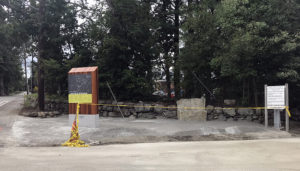 Due to a typographical error, the ending time for the open forum portion of the October 20 State of the Town Meeting was listed incorrectly in the Lincoln Squirrel. It runs from 12–12:30 p.m., not 2:30. The agenda in the original post and subsequent correction have bene corrected.
Due to a typographical error, the ending time for the open forum portion of the October 20 State of the Town Meeting was listed incorrectly in the Lincoln Squirrel. It runs from 12–12:30 p.m., not 2:30. The agenda in the original post and subsequent correction have bene corrected.- The October 10 article headlined “Sales of dolls, antiques providing big share of MCC budget” incorrectly stated that the MCC fundraising had enabled a group of METCO students to go to Lincoln Summer Day Camp for free. They actually have to pay a minimal fee comprising a small fraction of the actual cost. The original article has been corrected.
government
Corrections
 The agenda for the October 20 State of the Town meeting posted in the Squirrel on October 9 was incorrect. Here is the correct agenda for the meting, which will take place in Brooks auditorium from 10:30 a.m.–12:30 p.m.:
The agenda for the October 20 State of the Town meeting posted in the Squirrel on October 9 was incorrect. Here is the correct agenda for the meting, which will take place in Brooks auditorium from 10:30 a.m.–12:30 p.m.:
- Campus building projects (10:30–11 a.m.)
- South Lincoln planning (11–11:30 a.m.)
- deCordova bylaws (11:30a.m.–noon)
- Open forum (12–12:30 p.m.)
- Post-meeting table session (12:45–1:15 p.m.)
- A photo caption in the October 10 story headlined “Sales of dolls, antiques providing big share of MCC budget” was initially incorrect; the second person in the photo is Erica Gonella, the MCC’s treasurer and director of annual giving.
Both posts have bene updated to reflect these corrections.
Town Meeting and election information
(Editor’s note: This post has been updated to reflect the corrected agenda for the State of the Town meeting.)
Special Town Meeting and State of the Town
On Saturday, Oct. 20, there will be a Special Town Meeting vote on the status of marijuana businesses in Lincoln starting at 9 a.m., immediately followed by the State of the Town meeting at 10:30. During the Town Meeting, residents will be asked to vote to:
- Extending the current town moratorium on marijuana-related businesses from Nov. 30, 2018 to June 1, 2019.
- Amending the zoning bylaw to prohibit all marijuana establishments (retail, cultivation, testing, research, product manufacturing, etc.).
Click here for the warrant. Previous Lincoln Squirrel articles:
- Hearing focuses on marijuana businesses in town (Sept. 11, 2018)
- Special Town Meeting vote on marijuana businesses planned (July 26, 2018)
- Panelists share views on marijuana sales and use (May 1, 2018)
State of the Town
There will be no votes at the State of the Town portion of the morning, but officials will present updates on the following:
- Campus building projects (10:30–11 a.m.)
- South Lincoln planning (11–11:30 a.m.)
- deCordova bylaws (11:30a.m.–noon)
- Open forum (12–12:30 p.m.)
- Post-meeting table session (12:45–1:15 p.m.)
Early voting hours set
Early voting for the November 6 election will be offered in the Town Clerk’s office from Monday, Oct. 22–Friday, Nov. 2. Hours:
8:30 a.m.–4:30 p.m. on Mondays, Wednesdays, and Fridays
8:30 a.m.–7 p.m. on Tuesdays, Oct. 23 and 30, and Thursdays, Oct. 25 and Nov. 1
9 a.m.–3 p.m. on Saturday, Oct. 27.
Voting on Election Day takes place in the Smith gym from 7 a.m. to 8 p.m. Anyone who has not registered for the election must do so by Wednesday, Oct 17. Click here for a specimen ballot.
School officials begin cutting items from school project
 The School Building Committee on Wednesday started the process of changing and removing elements of the school project to meet a voter-mandated budget, making a handful of adjustments from a list provided by SMMA Architects that totaled just over $1.4 million. But the group has more work to do to reach the target total reduction of $8.97 million.
The School Building Committee on Wednesday started the process of changing and removing elements of the school project to meet a voter-mandated budget, making a handful of adjustments from a list provided by SMMA Architects that totaled just over $1.4 million. But the group has more work to do to reach the target total reduction of $8.97 million.
A week ago, the SBC was presented with two independent cost estimates of $102 million and $109 million for the project. Since then, architects and Daedalus, the owner’s project manager, took a closer look at those figures to try to reconcile them. The lower estimate rose while the higher one fell, and the resulting higher figure (the one that the SBC must use for planning) is $104.28 million.
Over the next two weeks, the SBC will continue the “value engineering” process of voting on items to cut that add up to $8.97 million. That figure represents the difference between the $76.01 million construction portion of the total $93.9 million budget approved at a Special Town Meeting in June and the latest construction cost estimate of $84.98 million.
The full project budget also includes non-construction “soft costs”—fees, contingencies, escalation percentages, furniture, technology, permitting, etc. Since June, the estimate for those soft costs has also risen from $17.9 million to $19.3 million.
The areas where cost estimates rose the most compared to June were site work, which went up by $5.22 million, and temporary modular classrooms, which rose by $2.94 million. Before the June vote, the site work plans were more incomplete than the rest of the project and it turns out the required work is slightly more extensive and costly than expected. The earlier estimates had also assumed that some space on the Hartwell side of campus could be sued as temporary “swing space” during construction, but since the spring, it’s become clear that the pods can’t be used for this because they are fully occupied and would also require costly code upgrades to be used as regular classrooms.
The value engineering list includes line items of possible cuts but also a few additions. The SBC on Wednesday approved one of those additions—$150,000 for a tweak to the layout of the learning commons.media center portion of the building that members already approved in principle at their previous meeting.
Some of the biggest dollar items on the value engineering list are program changes, such as eliminating all work to the auditorium except HVAC, sprinklers and fire alarms ($1.59 million); eliminating the media center wing and putting that function in the learning commons area ($1.26 million); eliminating the link between the Reed gym and the main building ($1.17 million); and keeping preK in the main Hartwell building rather than adding it to the renovated building ($1.01 million).
School officials are understandably resistant to these sorts of reductions. “We hate to see programs cut before other things,” said Superintendent of Schools Becky McFall. As for the idea of not building a link between the school and Reed gym, middle school principal Sharon Hobbs was more emphatic, saying it’s “unacceptable” to keep the two buildings detached from each other for safety reasons.
A covered walkway was actually in the initial plan when the gym was built in 1970, but ironically, “it was value-engineered out,” said Buck Creel, Lincoln Public Schools’ administrator for business and finance.
Other ideas floated
Several other cost-cutting ideas were floated as well, but officials need more information before deciding if they are feasible. For example, if the town is able to buy the modular classrooms now being used at Hanscom on favorable terms, it could save up to $1.7 million. Another possibility is reducing or eliminating the direct cost for the photovoltaic system, which would save up to $3 million. That would require amending the town’s solar bylaw to allow selling excess electricity to the grid and working out a favorable contract with the PV vendor.
Yet another possibility is moving the cost of furniture and equipment from the construction budget into the school’s operating budget. This could save $1.06 million on the project, but that money would still have to be appropriated as part of the annual budget process.
Also at the SBC meeting, Town Manager Tim Higgins reported on preliminary research by officials on possible supplementary funding sources for the school project. These include:
- The Community Preservation Act, which might be applicable to recreational items in the project such as playgrounds
- Chapter 90 state roadway funds and the Complete Streets state grant program, which might be tapped for Ballfield Road and/or walkway improvements
- A town fund that receives annual fees paid by cable TV companies, which may be applicable for work in the Brooks auditorium, where televised Town Meetings are held
- Grants to help pay for photovoltaic (PV) solar panel installations on or near the school
Officials are gathering more information on all of these ideas, but meanwhile, the clock is ticking. The SBC is due to finalize the cost-cutting process on October 17, which will be followed the next day by a multiboard meeting; the annual State of the Town meeting on October 20; a second multiboard meeting/community forum on November 15; and bonding votes by residents at a Special Town Meeting and the polls on December 1 and 3, respectively.
Latest cost estimates for school project are well over budget
 Town officials were chagrined Wednesday night to learn that preliminary cost estimates for the Lincoln School project are substantially higher than the $93.9 million budget approved by residents at a Special Town Meeting in June.
Town officials were chagrined Wednesday night to learn that preliminary cost estimates for the Lincoln School project are substantially higher than the $93.9 million budget approved by residents at a Special Town Meeting in June.
At its meeting Wednesday evening, the School Building Committee (SBC) and others heard the two independent estimates for the project—one at $102 million and one at $109 million—in shocked silence. Those numbers are 8.6 percent and 16 percent higher than the original figure, respectively.
On Friday, architects and representatives from Daedalus, the owner’s project manager representing the town, will have an all-day meeting to go over the cost estimating figures in detail and try to reconcile the two estimates by making sure they used the same set of assumptions as to scope, quantities and costs of materials, etc.
“We need to understand why” both figures are significantly higher than the earlier estimate, said Delwyn Williamson, director of cost estimating at Daedalus.
The gross square footage of the project has changed slightly in design tweaks since June, but square footage “is not really making a difference at this point,” Williamson said. One of the contributing factors for the increase may be in the cost of modular classrooms, because early proposals incorrectly assumed that the Hartwell pods could be used for some of the swing space during the two phases of construction, she said. The cost of reusing the modular classrooms from the recent Hanscom projects is also higher than anticipated, but it’s still unclear exactly how much these issues affected the estimates.
Between this Friday and the next SBC meeting on October 3, SMMA will come up with a list of “value engineering” items for the SBC to look at as they consider what aspects of the project to change or remove in order to meet the mandated budget.
“We have a very high level of sensitivity to the community’s need to have that price as low as possible while still preserving the program,” said SBC member Kim Bodnar.
On a hopeful note, Buck Creel, the Lincoln Public Schools administrator for business and finance, noted that the initial estimate for the 2012 project came in at more than $60 million, but the SBC was able to get that amount down to $49 million (although the project eventually failed to get the necessary two-thirds majority at Town Meeting). Part of that reduction came about when the SBC elected not to relocate preK from the Hartwell building to the main school—a move that is also in the current plan, at least for now.
More meetings coming up
The SBC is scheduled to approve a final cost figure on October 17. The group may add another meeting on October 10. There will be a multiboard meeting on October 18 (two days before the annual State of the Town meeting) to gather questions from other town boards, and a second multiboard meeting/community forum on November 15.
A two-thirds majority is required at a Special Town Meeting on December 1 to approve bonding for the project. There will also be a December 3 town-wide ballot that must win a simple majority for the project to advance.
The $93.9 million Option L3 was the mid-priced choice among the three options presented to voters in June. In the final vote, 74 percent of residents voted to move ahead with Option L3, compared to 17 percent for Option C ($94.3 million) and 9 percent for Option L2 ($83 million).
South Lincoln “welcome center” under construction
Construction has begun on a small outdoor welcome center in South Lincoln next to the entrance to the resident commuter rail lot, and officials are seeking more input on the area through an online survey.
The “pocket park” is one of the projects suggested by the South Lincoln Planning and Implementation Committee (SLPIC) to revitalize the area near the train station/mall and make it more welcoming to visitors and pedestrians. When complete, the park will have a welcome kiosk with maps, a bike repair system, bike racks and a granite bench donated by the DPW.
After the pocket park/welcome center is completed, a wayfinding system will be installed that will lead pedestrians and cyclists from there to Drumlin Farm, with stops along the way at Codman Farm and Codman Estates. Future funding will allow the town to expand this system and complete Phase II of the pocket park/welcome center, which will include pavers to replace stone dust as well as a a trail connection to Codman Farm.
As it thinks about ways to encourage a vibrant, mixed use, pedestrian-oriented village center in South Lincoln, SLPIC is asking residents to offer their opinions about various design options. This survey includes summaries and questions on a series of images of things like business frontage, housing and business architecture, bike and pedestrian routes, signage, and more. The deadline for participating in the survey is Sunday, Sept. 30.
Part of SLPIC’s work includes developing a proposed zoning bylaw amendment to encourage mixed-use, transit-oriented development that can accommodate a variety of housing choices. The group is also conducting a feasibility study of the town-owed Department of Public Works site on Lewis Street for look at opportunities to consolidate public works functions that could free up some or all of the four-acre site for a potential housing development.
With the help of state grants, the town has already completed improvements to some sidewalks and roadside paths and installed a new pedestrian island on Route 126 at Lincoln Road. The town is hoping for more funding to make several improvements to the train stops on either side of Lincoln Road.
Public hearings coming up
 Planning Board
Planning Board
There will be a public hearing on Tuesday, Sept. 25 at 7 p.m. on two proposed changes to the zoning bylaws relating to marijuana businesses in Lincoln. Residents will be asked to vote on the measures at a Special Town Meeting on October 20.
Zoning Board of Appeals
The Zoning Board of the Appeals will hold a public hearing on Thursday, Oct. 4 at 7:30 p.m. to hear and to act on the following petitions:
- Myra Ferguson, 14 Baker Bridge Rd., for transfer of a special permit for an accessory apartment.
- Richard Hermann, 25 Bypass Rd., for renewal of a special permit for an accessory apartment.
- Alex MacLean, 23 Conant Rd., for renewal of a special permit for an accessory apartment.
Lincoln Dems hear about tactics for upcoming election
By Barbara Slayter
Nine leaders from five organizations spoke to an audience of several dozen residents at a Lincoln Democratic Committee rally on September 19. The event aimed to build grassroots enthusiasm for efforts to get out the vote for Democratic candidates in the November 6 midterm election.
Quentin Palfrey, a candidate for lieutenant governor and former Obama administration staffer, made the case for supporting the Democratic candidates at the top of the Massachusetts ticket based on issues included environment, health care, education, jobs for the middle class, the economy, and the justice system.
Democratic Coordinated Campaign members Diana Goswami, Maureen Kelledy, Jess Lieberman, and Kelsey Perkins talked about field management jurisdictions, volunteer options, and various new technology “assists” including VoteBuilder and Minivan.
Sarah Higginbotham, Election Team organizer for Minuteman Indivisible (MI), part of a network intended to promote a vigorous democratic process, told the audience about the Minuteman Muster, an MI newsletter that offers information about various progressive political events in the Metro West area. She identified the five out-of-state Congressional candidates that MI is supporting and invited those present to join in various aspects of the campaign including fundraising, phone banking, and writing postcards in support of their candidacies.
Susan Labandibar, regional coordinator for Swing Left, and Tom Hallock, co-chair of Force Multiplier, identified “flippable” Congressional seats—those seen as toss-ups between Republican and Democratic candidates and where efforts to reach local voters could make a significant difference.
Michelle Olson, Co-founder and CEO of Elect435, noted that her organization offers a single source for identifying, researching, and supporting candidates for Congressional candidates who reflect progressive values and priorities.
From the floor, Joan Kimball, Lincoln coordinator for Grandmothers for a Brighter Future, provided information about how to get involved with postcard writing by Lincoln women (and a few men) in support of three Senatorial candidates—Claire McCaskill of Missouri, Kyrsten Sinema of Arizona, and Jacky Rosen of Nevada. Grandmothers for a Brighter Future, cofounded by Margot Lindsay, a former Lincoln resident, is a national organization with members in 46 states and the district of Columbia.
Lincoln resident Mike O’Brien offered suggestions and avenues for encouraging Lincoln’s progressive writers, and Gabriella Muscolo identified her work with registering new citizens through the Massachusetts Immigrant and Refugee Advocacy Coalition. Other Lincolnites raised important questions on the utility of phone banks, ways to strengthen voter turnout, and out-of-state candidates deserving the support of Lincoln residents.
For additional information, contact Gary Davis at garyddavis04@gmail.com or Barbara Slayter at bslayter@comcast.net.
News acorns
 Lincoln Dems to hold planning session
Lincoln Dems to hold planning session
Join the Lincoln Democratic Town Committee planning session and discussion on Saturday, Sept. 15 at Bemis Hall with coffee, fruit, and pastries at 8:30 a.m. and discussion from 9–11 a.m. Gain perspectives, insights, and campaign strategies for canvassing, grassroots organizing, remote voter contact activities, voter registration, getting out the millennial vote and more from:
- Quentin Palfrey, Democratic candidate for lieutenant governor
- A representative of MassDems
- Swing Left regional coordinator Susan Labandibar
- Force Multiplier co-chair Tom Hallock
- Minuteman Indivisible elections team organizer Sarah Higginbotham
LFA playgroup starting
The Lincoln Family Association playgroup at First Parish in Lincoln will begin meeting Wednesday mornings from 9:30-11:30 a.m. beginning Wednesday, Sept. 26 in the Parish House (14 Bedford Rd.) Designed for children aged 0-5 and their parents/caregivers. Adults must accompany their children; this is not a drop-in program.
Two events focusing on teens
The Lincoln-Sudbury Parent Organization presents comedian and neuropsychologist Matt Bellace speaking on “Supporting Teens in Reducing Their Stress (and Ours)” on Thursday, Sept. 27 at 7 p.m. in the L-S auditorium. This presentation (primarily for parents, but students are welcome) is about reducing stress, adolescent brain development, substance abuse and encouraging teens to be resilient.
On Wednesday, Oct. 3 from 7:30-9 p.m. in the L-S cafeteria, Connections is hosting an evening for parents to hear, think about and discuss the five greatest factors that put our children at risk for addiction. Learn more about Connections and hear about conversations families may want to have in and around substance use. Also on hand will be the new L-S school resource officer Kim Walch to introduce herself and explain what her role will be in the school, as well as discuss ways that parents can work with the school and the police to help keep our kids safer. Click here to register.
Afternoon session looks at U.S. Supreme Court
The Lincoln Public Library and the Lincoln Council on Aging present “The Supreme Court with Walter Bossert” on Saturday, Oct. 6 from 2–4:15 p.m. at the library. First you’ll watch a video by C-Span including interviews with 11 justices about the role, traditions, and history of the Court and a tour the Supreme Court building. Bossert (a Lincoln resident) will then discuss Central Hudson v. PSC (1980), a seminal Supreme Court case on commercial freedom of speech. Bossert was a co-author of the winning brief in the 8-1 decision.
Letter to the editor: John Hugo asks for votes
I want to take this opportunity to thank and congratulate every single person, no matter the party and no matter who you voted for, who took the time to do their civic duty on Tuesday, September 4. Our republic only works, indeed can only thrive, if informed citizens participate. And I’m truly humbled and honored that 64 percent of those who voted in the Republican primary selected me to be the Republican nominee for the Massachusetts 5th Congressional district. I want to congratulate Dr. Louis Kuchner, my primary opponent, for running a spirited campaign that took the high road and focused on issues. He has graciously endorsed my candidacy and pledged his support. I am truly grateful. Having Dr. Kuchner as a primary challenger has made me a better candidate.
I’m running, quite frankly, because I’m sick and tired of hearing people complain about the way things ought to be, but never doing anything about it. I’m just an average working-class citizen, struggling to pay my bills. I’m a taxi dispatcher. I’m sure you’ll hear that from my opponent’s campaign at some point. What can I possibly know about being a legislator? The answer is simple: I have lived with and under the laws, paid the taxes, and dealt with consequences of what legislators do—just like the average voter in our district. But most important, I love my country and I don’t believe that Katherine Clark’s vision of America and policy views are consistent with the vision and policy views espoused by the hard-working people struggling to make ends meet in our district.
America is a bulwark of freedom. The Constitution protects and guarantees that freedom, primarily from the government. Our free-market economy affords Americans the best hope for liberty, opportunity, and prosperity. Free-market capitalism, although not perfect, has done more to elevate people from poverty than any well-intentioned government programs, which often times institutionalize poverty for generations.
I want to congratulate Katherine Clark and invite her to debate the issues. I believe there are stark differences in our philosophy of government. Let’s debate them. The hardworking people of the 5th Congressional District deserve no less.
I invite you the voters to visit www.johnhugo.com to read more specifics about what I believe and what priorities will be as your congressman.
Sincerely,
John Hugo
Woburn, Mass.
Candidate for Congress, Massachusetts 5th Congressional district


